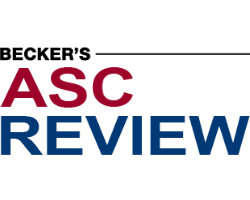Managing challenging employees: How to help

TAKEAWAYS • Addressing an employee with a competency or behavior issue is important for the well-being of staff and managers. • Determining the reason for the issue is an important first step to resolving it. • Sources of support for managers include colleagues, human resources, and educators. In today’s perioperative…
New physician compensation report reveals modest pay gains but growing discontent with the profession

Editor's Note An April 2024 Physician Compensation Report from Medscape shows that 2023 was “another year of steady pay gains for US physicians,” Medscape April 12 reports. However, physicians are not content with their “take-home pay,” still seeing their profession as being underpaid. Some takeaways from the report include: On…
Urologists advocate for resources to help surgeons prepare for, cope with adverse events
Editor's Note Adverse events are a ubiquitous, inevitable consequence of surgical practice, and more must be done to support surgeons before and after they occur. This is the central message of a video published March 27 by Urology Times, in which British urologist Kevin Turner, MA DM FRCS, of Royal…
Brain monitoring helps understand, combat cognitive overload in surgeons

Editor's Note Researchers at Imperial College London are using noninvasive brain monitoring to understand the stressors contributing to cognitive overload in surgeons as well as how to combat the condition. The Guardian reported the news on March 2. The monitoring technique, called functional near-infrared spectroscopy (fNIRS), measures neural activity in…
Surgeons, anesthesiology rank high on “stressful job” list

Editor's Note Citing research from Dolman Law Group, a March 11 article in Becker’s ASC Review notes that surgeons have the second-most stressful job of any profession in the US. Anesthesiology was third most stressful, while paramedic was fourth. Steelworker topped the list. The Dolman Law Group research examined data…
Survey: Healthcare worker burnout rates particularly high for women

Editor's Note Although burnout rates are high for all healthcare workers, females are particularly susceptible, according to a March 8 report in The Hill detailing a recent survey. Conducted by nursing marketplace firm ShiftKey, the survey found that 86 percent of all women in healthcare reported experiencing burnout, with 64…
Effect of professional coaching on surgeon well-being
Editor's Note This randomized, controlled study led by researchers from the University of Colorado, Denver, and the Mayo Clinic, finds that 6 months of professional coaching can reduce burnout, improve quality of life, and increase resilience among surgeons. A total of 80 surgeons were included in the analysis. At the…

 Free Daily News
Free Daily News